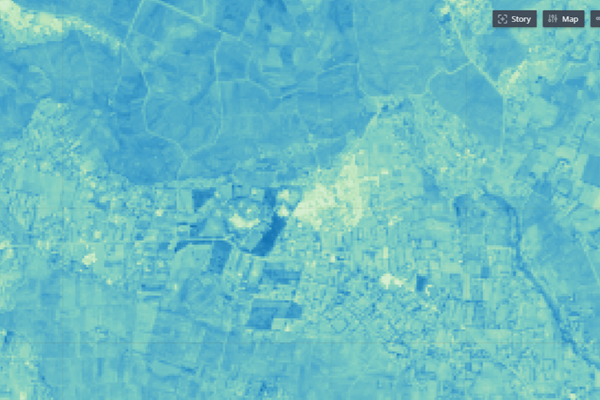 WaPOR activities in Egypt
WaPOR activities in Egypt
The Arab Republic of Egypt faces major challenges regarding water resource management, with the growing needs of an increasingly urbanized population and the dependence on external water supply from the Nile River implying a deepening gap between water demand and supply. To ensure food security, large areas of desert have been reclaimed and added more stress on country water resources.
Water and agriculture entities are looking for all forms of integration and cooperation with international organizations to highlight and contribute to resolving the agricultural-water challenges in Egypt. WaPOR data can help monitor land and crop productivity so that more crops can be grown with the available water resources that are already stretched thin.
Project partners in Egypt
💧 Ministry of Water Resources and Irrigation
🌾 Ministry of Agriculture and Land Reclamation
| 📍 WaPOR pilot area: Northern Egypt, Nile Delta. One of the largest L3 areas available in the portal. |
Country resources
Explore uses and applications of WaPOR data in Egypt.
WaPOR catalogue of applicationsLatest project updates in Egypt

New high-resolution areas in Egypt, Mozambique and Kenya available in WaPOR v3 portal
18/03/2024
Three new high-resolution areas are now available on WaPOR v3 portal for the subnational level in Northern Egypt (Egypt), Baixo Limpopo (Mozambique),...

WaPOR and QGIS regional training in Amman, Jordan
07/02/2024
Between 4 and 7 February, WaPOR hosted a regional training in Jordan including participants from Jordan itself, Iraq, Palestine and Egypt.
Read...

Inception workshop held in Cairo, Egypt
29/11/2023
The WaPOR 2 inception workshop in Egypt has taken place in Cairo on 28 November 2023. The workshop was attended by 50 participants from diverse fields...

Egypt is now part of the WaPOR project
06/06/2023
FAO signed an agreement with the government of Egypt to launch “Monitoring land and water productivity by Remote Sensing (WaPOR phase 2)” in the country.


